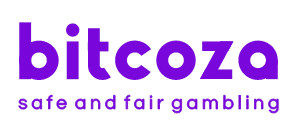The legality of Bitcoin gambling is a subject of significant interest and debate within the gambling industry. As cryptocurrency usage grows, questions about its legal status become more complex due to varying regulations across jurisdictions.
Understanding the legal implications and challenges is crucial for stakeholders, given the differing approaches to accepting or prohibiting Bitcoin in gambling.
This discussion will explore the global regulatory landscape, operational aspects, and the advantages and disadvantages, shedding light on the intricate legal considerations and future prospects of Bitcoin gambling.
Legal Status of Bitcoin Gambling
The legal status of Bitcoin gambling varies widely across different jurisdictions. Some countries accept cryptocurrency as a legitimate form of payment for gambling, while others impose strict regulations.
Bitcoin gambling offers greater anonymity, faster transactions, and reduced fees compared to traditional online gambling. However, tax implications remain complex and evolving due to the decentralized and pseudonymous nature of cryptocurrencies.
As the popularity of Bitcoin gambling grows, it presents both opportunities and challenges for players and regulators. Some embrace the freedom and advantages it offers, while others express concerns about potential risks and lack of oversight in this evolving sector.
Global Regulatory Landscape
The changing legal status of Bitcoin gambling has led to a thorough review of global regulations concerning cryptocurrency use in online gaming. Government regulations on cryptocurrency gambling vary widely, impacting the operations of the industry.
Evolving legislation directly affects the legality and acceptance of Bitcoin gambling in different countries, significantly shaping the opportunities and challenges for operators and players. The absence of specific laws regulating Bitcoin gambling in many regions adds complexity to the global regulatory landscape, creating both opportunities and uncertainties for the industry.
As governments grapple with the oversight of cryptocurrency use in online gaming, operators and players must stay informed about the changing legal environment to ensure compliance and freedom in their activities.
Operational aspects of Bitcoin Casinos
Amid the increasing popularity of cryptocurrency gambling, the operational intricacies of Bitcoin casinos play a crucial role in shaping the overall landscape of online gaming.
Cryptocurrency adoption in the gambling industry has led to heightened demand for security and privacy considerations in Bitcoin gambling. Bitcoin casinos operate similarly to regular online casinos, utilizing bitcoin wallets for transactions. The appeal lies in the anonymity and potential for increased winnings that players value. Security measures are essential to ensure the privacy of players and the integrity of the games.
As the industry evolves, the integration of blockchain technology has become integral to online gaming, offering enhanced security and transparency.
Bitcoin gambling presents business opportunities, but it is essential to navigate the operational aspects with a focus on security and privacy to ensure a seamless and trustworthy gaming experience for players.
Advantages and Disadvantages
Bitcoin gambling presents several important advantages and disadvantages for both players and operators in the online gaming industry.
Advantages:
- Privacy concerns: Bitcoin transactions offer anonymity, providing a level of privacy not found in traditional banking methods.
- Security risks: The decentralized nature of Bitcoin can lead to security vulnerabilities, necessitating robust security measures for both players and operators.
- Potential for increased winnings: Bitcoin gambling can offer higher potential winnings due to the absence of banking fees and the freedom from cryptocurrency value inflation.
It is crucial for individuals involved in Bitcoin gambling to carefully consider these advantages and disadvantages to make informed decisions in this evolving landscape.
Licensing and Compliance Requirements
In the iGaming industry, obtaining a gambling license is necessary for operating an online casino or betting platform and ensuring compliance with regulatory requirements. For Bitcoin casinos, the cost of obtaining a gambling license varies by jurisdiction, with popular choices being Curacao due to its affordability and attractiveness to Bitcoin users. Holding a gambling license allows Bitcoin casinos to work with payment systems, enhances player loyalty, and improves the casino’s reputation, which is crucial in the Bitcoin gambling industry. Below is a table outlining the cost of obtaining a gambling license for Bitcoin casinos in different jurisdictions:
| Jurisdiction | Cost of License |
|---|---|
| Curacao | Affordable |
| Malta | Moderate |
| United Kingdom | Expensive |
| Costa Rica | Minimal |
Challenges and Opportunities
Navigating the Bitcoin gambling landscape comes with various challenges and opportunities, particularly in meeting licensing and compliance requirements.
Challenges:
- Regulatory Compliance: Ensuring adherence to diverse and evolving gambling regulations worldwide is a significant obstacle for Bitcoin gambling operators.
- Security Measures: Implementing robust security protocols to protect against cyber threats and safeguard user information is crucial in the volatile online gambling environment.
- Market Acceptance: Overcoming skepticism and hesitation surrounding cryptocurrency adoption in the mainstream gambling market is a notable challenge.
Opportunities:
- Market Growth: The rapid expansion of the cryptocurrency market presents significant growth opportunities for Bitcoin gambling platforms globally.
- Innovation Potential: Leveraging blockchain technology and cryptocurrency innovations offers the potential to redefine the gambling industry and enhance user experience.
Future Outlook for Bitcoin Gambling
As cryptocurrency technologies continue to evolve and integrate into the gambling industry, the future of Bitcoin gambling presents potential advancements and challenges.
Blockchain technology offers increased transparency and security in online gaming, along with the advantages of anonymity, lower transaction fees, and faster payment processing.
However, the lack of regulation in the crypto gambling industry can lead to scams and fraudulent websites, and the volatility of Bitcoin may impact the value of winnings and losses.
As global legislation on Bitcoin evolves, operators must navigate the changing landscape to ensure compliance with gambling laws.



